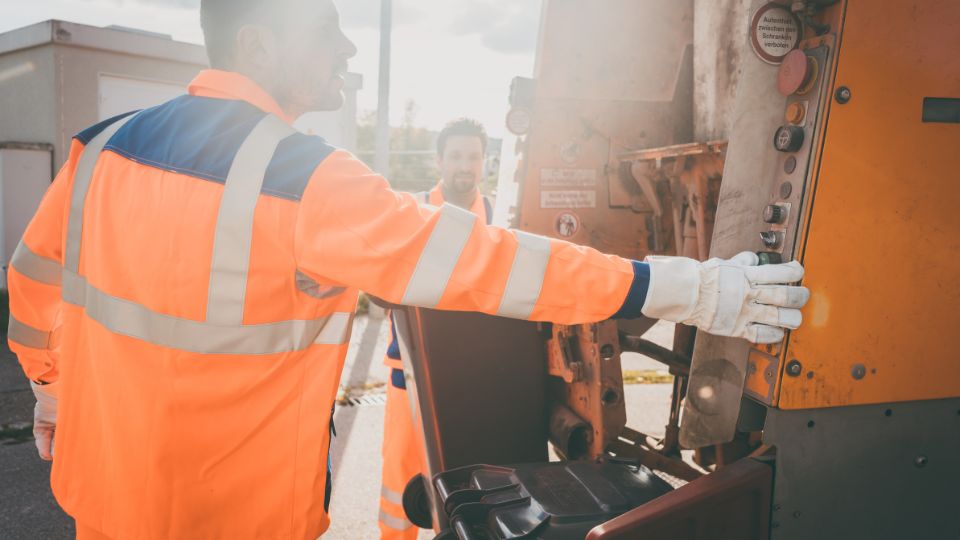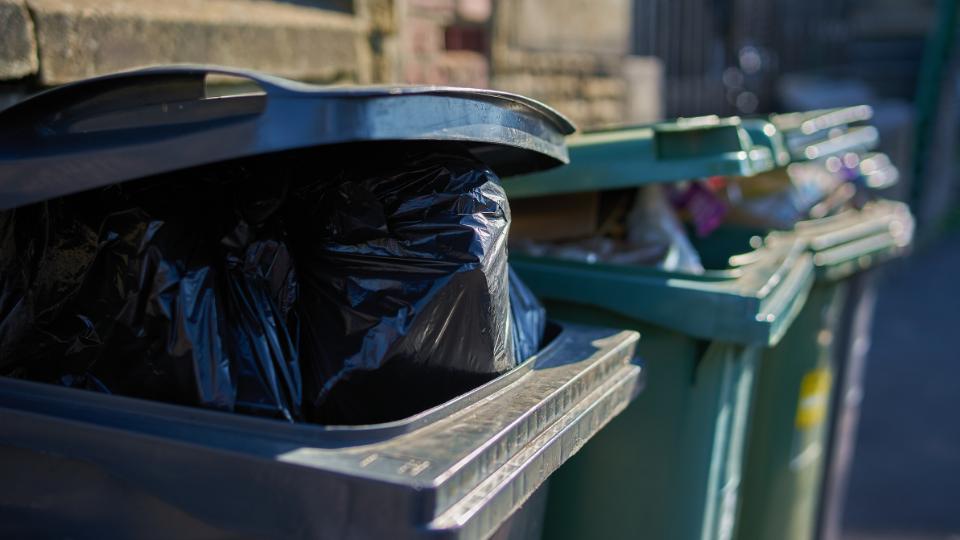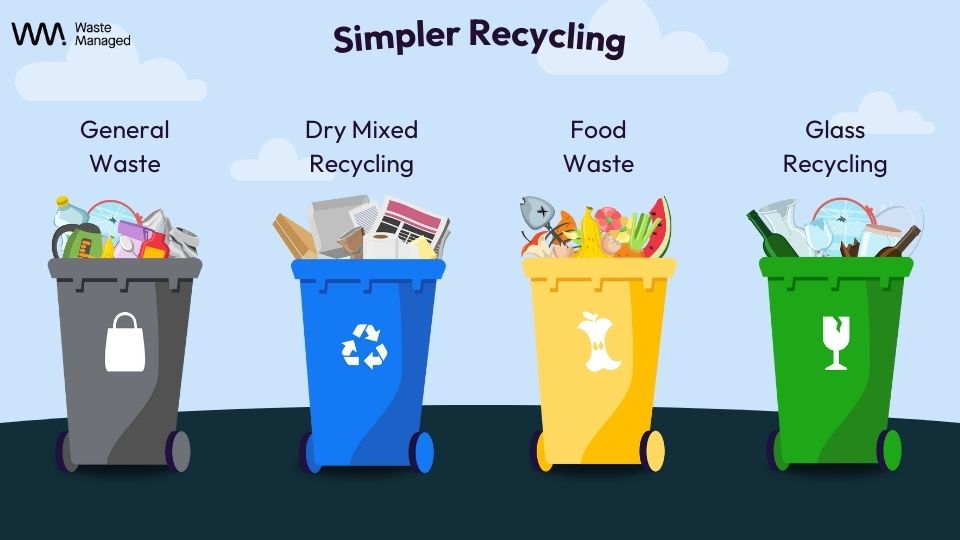
What is a waste transfer note (WTN)?
Waste transfer notes are an important tool for ensuring that waste is managed in a safe and environmentally responsible manner.
We don’t take things lightly when it comes to protecting our eco systems and this couldn’t apply to any aspect of industry & trade more than commercial waste management.
They help to track the types and quantities of waste being generated, and where it is being transported to and from. By keeping a record of each transfer, authorities can monitor the waste management process and ensure that all parties involved are complying with the relevant laws and regulations.
In addition to providing a record of waste transfers, waste transfer notes can also be used to help identify opportunities for waste reduction and recycling.
By analysing the types and quantities of waste being generated, businesses and organisations can develop strategies to reduce waste and improve their environmental performance.
Waste transfer notes are typically required for the transport of controlled waste, which includes hazardous waste, clinical waste, and certain types of non-hazardous waste.
The specific requirements for waste transfer notes vary depending on the country and region, but in general, they must include information about the waste being transferred, the parties involved in the transfer, and any relevant permits or licenses.
Overall, waste transfer notes play an important role in ensuring that waste is managed safely and responsibly. They help to protect the environment and public health, and provide a framework for waste reduction and recycling initiatives.
Table of contents
- What is a waste transfer note (WTN)?
- Why do I need a waste transfer note?
- How can I get a waste transfer note?
- Do I need one for domestic waste disposal?
- How much does a waste transfer note cost in the UK?

Why do I need a waste transfer note?
Business owners and site managers need a waste transfer note to meet legal obligations, protect the environment, and improve business efficiency.
Legal Compliance
One of the most important reasons to use a waste transfer note is to comply with legal requirements.
In many countries, it is a legal requirement to complete a waste transfer note when waste is transferred between parties. Failure to comply with this requirement can result in fines or other legal penalties.
By using a waste transfer note, you can be sure that you are meeting your legal obligations and avoiding any potential legal problems.
Duty of Care
As a waste producer or transporter, you have a duty of care to ensure that waste is managed safely and without harming the environment. A waste transfer note helps you to demonstrate that you have fulfilled this duty.
By providing a clear record of the waste transfer, you can show that you have taken responsibility for the waste and ensured that it is being managed safely and responsibly.
Environmental Protection
The environment is a precious resource that we must protect for future generations.
By keeping track of where waste is being transferred and how it is being managed, a waste transfer note helps to ensure that waste is disposed of or recycled in an environmentally responsible way.
This can help to reduce the environmental impact of your business and demonstrate your commitment to sustainability.
Business Efficiency
Keeping accurate records of waste transfers can also help you to identify opportunities to reduce waste, improve recycling rates, and save money on waste disposal costs.
By analysing your waste transfer notes, you may be able to identify areas where you can reduce waste, such as by implementing recycling programs or reducing packaging waste.

How can I get a waste transfer note?
To obtain a waste transfer note, you will typically need to follow these steps:
- Identify the type of waste you need to transfer: Different types of waste may require different procedures for transferring and disposing of them, so it’s important to understand what kind of waste you’re dealing with.
- Find a licensed waste carrier: In most countries, it is illegal to transfer waste without a license, so you will need to find a licensed waste carrier who can legally transport your waste. You can find licensed waste carriers through the government portal.
Just enter the name and details of the waste carrier to ensure that they are registered.
*Note: If you use our services we ensure your waste is always collected by a full licenced waste carrier.
- Provide details about your waste: Once you have found a licensed waste carrier, you will need to provide them with details about your waste, such as its type, quantity, and origin.
The waste carrier will use this information to prepare the waste transfer note.
- Sign the waste transfer note: Once the waste transfer note has been prepared, you will need to sign it to confirm that you agree with its contents.
The waste carrier will also need to sign it to confirm that they have received the waste from you.
- Keep a copy of the waste transfer note: It’s important to keep a copy of the waste transfer note for your records, as you may need to provide it to regulatory authorities as proof of your compliance with waste disposal regulations.
Waste transfer notes are a necessary part of waste disposal regulations in the UK and are designed to help ensure that waste is being handled and disposed of properly.
To obtain a waste transfer note, you will need to identify the type of waste you need to transfer, find a licensed waste carrier, provide details about your waste, sign the waste transfer note, and keep a copy of it for your records.
By following these steps, you can help ensure that you are complying with waste disposal regulations and doing your part to protect the environment.
Do I need one for domestic waste disposal?
No, you do not need a waste transfer note for domestic disposal in most cases.
Waste transfer notes are typically required for commercial waste disposal, where businesses or organisations produce waste as part of their operations.
However, it is still important to ensure that you dispose of your domestic waste responsibly and in accordance with local regulations.
This may involve using designated waste disposal sites or bins provided by your local council, or arranging for a private waste collection service.
If you have any doubts or questions about the proper disposal of your domestic waste, you can contact your local council or waste management authority for advice and guidance.
How much does a waste transfer note cost in the UK?
Waste Managed provide waste transfer notes to all customers as part of the lifetime duty of care we offer for the price of just one year.
A waste transfer note is a legal document used in the UK to track the transfer of waste from one party to another.
Under UK law, waste producers have a duty of care to ensure that their waste is handled and disposed of properly.
This includes completing a waste transfer note for every load of waste that is transferred, and ensuring that the waste is transferred only to an authorised person or business.








